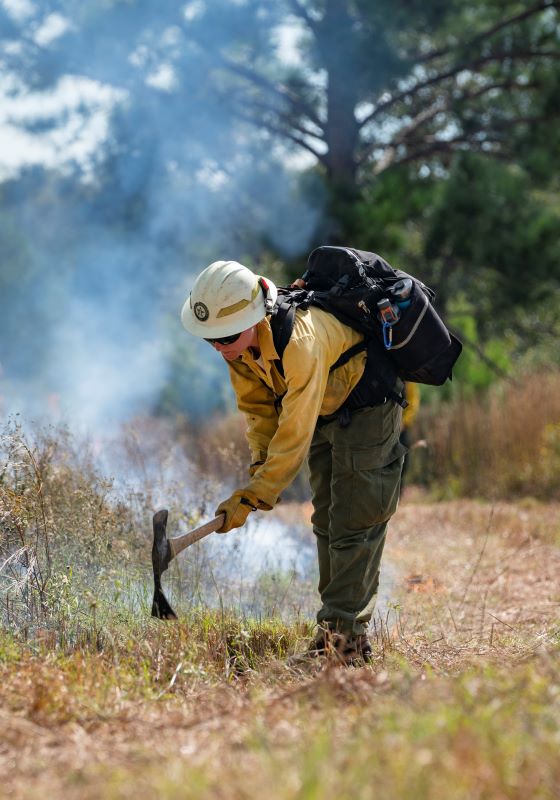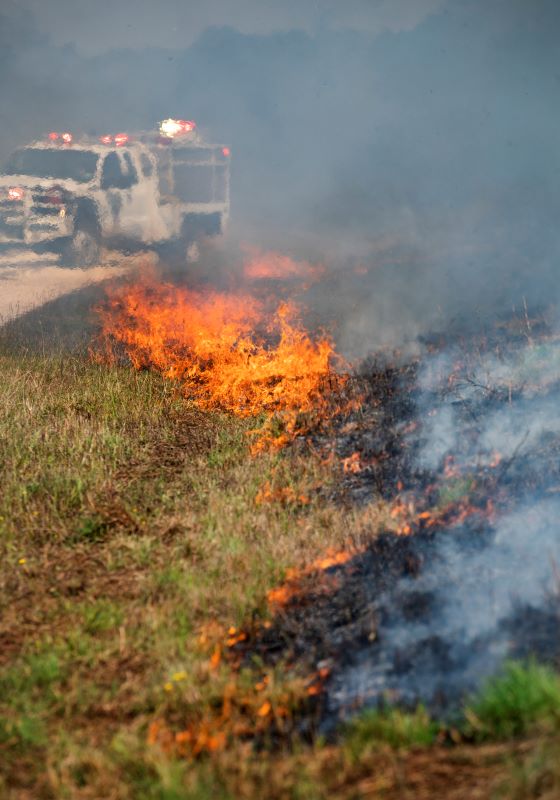Burn Bans & Information
We provide a continuous and comprehensive assessment of wildfire potential for Texas.
Burn bans
In Texas, local governments are empowered to act on behalf of those they serve. When drought conditions exist, a burn ban can be put in place by a county judge or county commissioners court prohibiting or restricting outdoor burning for public safety.
Wildfire information
We analyze current and predicted weather conditions, wildfire occurrences, and the state of vegetative fuels to deliver crucial products. This helps us to maintain an assessment of wildfire risk at the state, regional, and local level. With this information, staff develop daily and seasonal forecasts to assist in preparing for and responding to periods of elevated fire danger.
-
Find the current wildfire status, preparedness level, and more.

-
We produce products to support fire management efforts. Including fire potential updates, fire danger ratings, fuel dryness maps, and seasonal outlooks.

-
It is important to be aware of your wildfire risk. Rapid population growth into the wildland urban interface and increased occurrence of elevated fire environment conditions mean an increased risk for devastating wildfires in Texas.

-
A period of time when an area experiences below-normal precipitation. We provide drought-determination information using the Keetch Byram Drought Index to Texas county governments.
